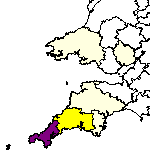Devotion
In which The Parents are keeping track of all the numbers
The Parents have always been fans of gadgetry. Moreover, whenever they get a new gadget, they become strangely devoted to it. I can still remember, when I was small, and The Parents bought a dehumidifier. My mother set it up in the middle of the kitchen with its back off, sat down in front of it on the uncomfortable kitchen stool, and watched it operate: watched the ice slowly and imperceptibly build up on its freezing tubes, before melting off again into the collection bucket.
My dad’s always been worst, if anything, so I knew what would happen as soon as his latest toy was fitted. A solar water heating system, complete with dials and gauges and sensors and settings to tweak. As soon as someone gets in the shower, Dad is in the airing cupboard watching all the sensors slowly change, checking that the solar pump starts up at the right point,* watching the water tank temperature, the solar collector temperature, the glycol flow rate, the system pressure, monitoring all the dials he possibly can. And, as soon as you get out of the shower: “Was it hot enough? The tank temperature was down to fifteen degrees – the pump activity reached 90% because the collector was still up around thirty”.
He loves it; he loves tracking all the various numbers. But, as a wise person once said: just because something is measurable, or tweakable, doesn’t mean it’s worth measuring or tweaking.** Nevertheless, I wouldn’t be surprised if, the next time I see him, he’s started drawing graphs.
* Yes, we have an energy-efficient environmentally friendly solar water-heating system now: so why does it need an electric pump, powered by our local gas-fired power station no doubt, to run it?
** I have no idea who first said that, but I’m sure I first read it in Essential System Administration.

 Home
Home



